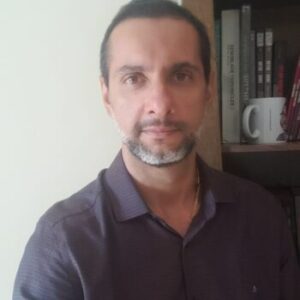COMPUTATION
April 20th, 2024: Submission deadlineMay 05th, 2024: Submission deadlineJune 03rd, 2024: Hard deadlineJuly 07th, 2024: Notification of first decision (only for computation track. Other tracks may evaluate if interested).July 14th, 2024: First rebuttalJuly 22th, 2024: Notification of acceptanceJuly 28th, 2024: Camera-Ready due
Main Section:
This section is the traditional full-paper section of SBGames. We invite technical paper contributions that present original, unpublished research on any aspect of Computing for Games and Digital Entertainment. Manuscripts must be submitted electronically through the JEMS system.
Accepted full papers will be published by an International Conference Publishing Service and will be available online at ACM Digital Library.
If your manuscript only explores shallow aspects of computing, then consider submitting it to other SBGames tracks. Therefore, papers addressing game design, specific game styles, soundtracks, and digital art should be submitted to the SBGames Arts & Design Track. Papers focusing on any cultural or social aspect of digital games should be submitted to the SBGames Culture Track. Papers related to education should be submitted to the SBGames Education
Track. Papers addressing management, business, organizational, and operational aspects of the game and digital entertainment industry should be submitted to the SBGames Industry Track. In case of doubt about which technical track to submit, please contact the Program Committee Chairs.
Full papers must be written in ENGLISH, 6 to 10 pages long, including references (manuscripts with more than 10 pages will be liable to summary rejection). Manuscripts should be submitted electronically through the JEMS system.
All submissions must follow the ACM SIG Proceedings template. Among the various ACM paper templates, make sure that you use the “SigConf” version, i.e., use “sample-sigconf.tex” if you use LaTeX and “Interim layout.docx” if you use MS Word for preparing your manuscript.
The ACM LaTeX template is also available on the Overleaf platform. In addition, make sure that you use the 2012 ACM Computing Classification System (CCS) to choose CCS Concepts for your paper. For detailed instructions, refer to the CCS 2012 page.
Please number your references in the order in which they appear. When available, citations must include full publication information, including all authors and DOI numbers.
A sample of the resulting paper using the ACM template is available at interim sample. Attention: any deviation from the ACM format will be liable to the manuscript’s summary rejection because inadequate formats (even minor variations) compromise the entire publishing process.
Authors must strictly adhere to the Anonymity Requirements described below.
Camera-ready Submissions
You must complete the ACM Rights Form for your work after it is accepted for presentation. This is a prerequisite for presentation and publication. The rights text that is added to your documentation is generated from the rights choices you make on this form – OA, copyright transfer, etc.
Download the ACM Rights Form
Technical Section:
This is the traditional short paper section of SBGames. We invite technical paper contributions to this section that present ongoing innovative research projects under development, development from lab to industry applications, and general technical information in all areas of Computing for Games and Digital Entertainment. Undergraduate and graduate students are encouraged to submit their research projects.
The SBC Special Committee of Games designed the SBGames conferences primarily to stimulate students, which is why the Short Paper Section is paramount. They are the future creative forces that will change the industry and research in games and digital entertainment. Additionally, free and creative ideas are welcome because they represent future disruptive innovations.
Short papers must be written in ENGLISH, 3 to 5 pages long (manuscripts with more than 5 pages will be liable to summary rejection). Manuscripts should be submitted electronically through the JEMS system.
Manuscripts submitted to this section must strictly follow the new SBGames style template (Based on SBC Template). The templates are available at: Word (https://docs.google.com/document/d/1C95R6bjAv5cGB9b2NNW000ihYwy1wBK_/edit?usp=sharing) | Latex (https://www.overleaf.com/latex/templates/template-artigos-sbgames-sol-sbc/fxzgpzwkvmxy).
Please notice that manuscripts written in English must include only the abstract in English (the Portuguese abstract must be removed from the template).
Attention: Any deviation from the SBC format will be liable to the manuscript’s summary rejection because inadequate formats (even with minor variations) compromise the entire publishing process.
The authors of short papers must summarize their work to be presented for up to 5 min in English or Portuguese in a technical session. Finally, authors must adhere strictly to the Anonymity Requirements described below.
Anonymity Requirements:
Once the review process of submissions is double-blind, authors must prepare their manuscripts without indicating their identities, previous published papers/products, or institutional affiliations. The author’s identities will be tracked only by the submission system and visible only by one of the track Chairs. The program committee members and referees who review the paper will not know the author’s identity.
You must also be careful referring to related past work, particularly your own. For example, avoid mentions of your work as “In our previous work [X]…” and prefer third person referencing as “In previous work [X]…”. Despite the anonymity requirements, you should still include all relevant work of your own in the references, using the above style (omitting them could potentially reveal your identity by negation).
It is the responsibility of authors to do their best to preserve anonymity. Papers that do not follow the guidelines or otherwise potentially reveal the author’s identity are subject to immediate rejection.
Topics:
SBGames aims to encourage research, development, and sharing of innovative ideas, models, and practices, on computer applications in entertainment. The technical program committee invites original submissions to enhance computation and use studies in this field. Topics can include but are not limited to:
- Computer Games
- AI for Games
- Game Development
- Game Design
- Game Graphics
- Algorithmic Game Theory
- Immersive Games
- Serious Games
- Game Technology
- Game Art
- Game Culture
- Game-based Learning
- Gamification
- Game Industry
SBGames 2024 Co-Coordenadores

Jose Ricardo da Silva Junior

Luiz Schirmer
- Alessandra Macedo (USP)
- Alexandre Sztajnberg (Universidade do Estado do Rio de Janeiro)
- Ana Grasielle Dionísio Corrêa (Universidade Presbiteriana Mackenzie)
- Bruno da Silva Rodrigues (Universidade Presbiteriana Mackenzie)
- Carine Webber (Universidade de Caxias do Sul)
- Carlos Henrique Rorato Souza (Universidade Federal de Goiás)
- Celso Saibel Santos (UFES)
- Claudio Rodrigues (Fiocruz)
- Cynthia Dias (Escola Politécnica de Saúde Joaquim Venâncio – Fundação Oswaldo Cruz)
- Debora Muchaluat-Saade (UFF)
- Edson da Silva (Universidade Federal dos Vales do Jequitinhonha e Mucuri)
- Eduardo Damasceno (Universidade Tecnológica Federal do Paraná)
- Eduardo Caio Torres-Santos (Instituto Oswaldo Cruz, Fiocruz)
- Fernando Luís de Queiroz Carvalho (Universidade do Estado da Bahia)
- Flávia Carvalho (Fundação Oswaldo Cruz (Fiocruz))
- Gilson Giraldi (National Laboratory for Scientific Computing)
- Helio Guardia (Universidade Federal de São Carlos)
- Humberto Razente (Universidade Federal de Uberlandia)
- Iwens Sene Jr (Universidade Federal de Goais)
- Joao Paulo Gois (Universidade Federal do ABC)
- Joaquim Felipe (University of São Paulo)
- Juliana Feitosa (UNESP – Bauru)
- Julio Saraçol Domingues Júnior (Universidade Federal Pampa (UNIPAMPA))
- Leandro Silva (Universidade Federal de Alagoas)
- Leila Silva (Universidade Federal de Sergipe)
- Liliane Machado (Universidade Federal da Paraíba)
- Luciana Berretta (Universidade Federal de Goiás)
- Luciano Romero Soares de Lima (Rede Sarah de Hospitais de Reabilitação)
- Luma Oliveira (Universidade Federal de Goiás)
- Marcelo Honda (Universidade Estadual de Santa Cruz)
- Marcelo Vasconcellos (Oswaldo Cruz Foundation (Fiocruz))
- Marcelo da Silva Hounsell (UDESC – Universidade do Estado de Santa Catarina)
- Marcia Ito (PPG-GTSP – CEETEPS)
- Marcos Seruffo (UFPA – Universidade Federal do Pará)
- Maria Camila Nardini Barioni (UFU)
- Marly Guimarães Costa (Universidade Federal do Amazonas – UFAM)
- Paula Abreu (UFRJ)
- Paulo Ambrósio (Universidade Estadual de Santa Cruz)
- Paulo de Azevedo-Marques (University of Sao Paulo – USP)
- Ricardo Nakamura (Escola Politécnica – USP)
- Rodrigo Luis de Souza da Silva (Universidade Federal de Juiz de Fora)
- Romero Moura Júnior (Instituto Federal de Educação Ciência e Tecnologia Baiano)
- Rosa Maria E. Moreira Costa (Universidade do Estado do Rio de Janeiro)
- Sílvio Cazella (UFCSPA)
- Selan dos Santos (Universidade Federal do Rio Grande do Norte)
- Suiane Ferreira (Universidade do Estado da Bahia)
- Tadeu Moreira de Classe (Universidade Federal do Estado do Rio de Janeiro)
- Vania Vargas (Universidade de São Paulo)
- Vera Werneck (Universidade do Estado do Rio de Janeiro)
- Victor Sarinho (Universidade Estadual de Feira de Santana)
- Vinicius Tragante (deCODE genetics/Amgen Inc.)
- Wellington Pinheiro dos Santos (Universidade Federal de Pernambuco)
